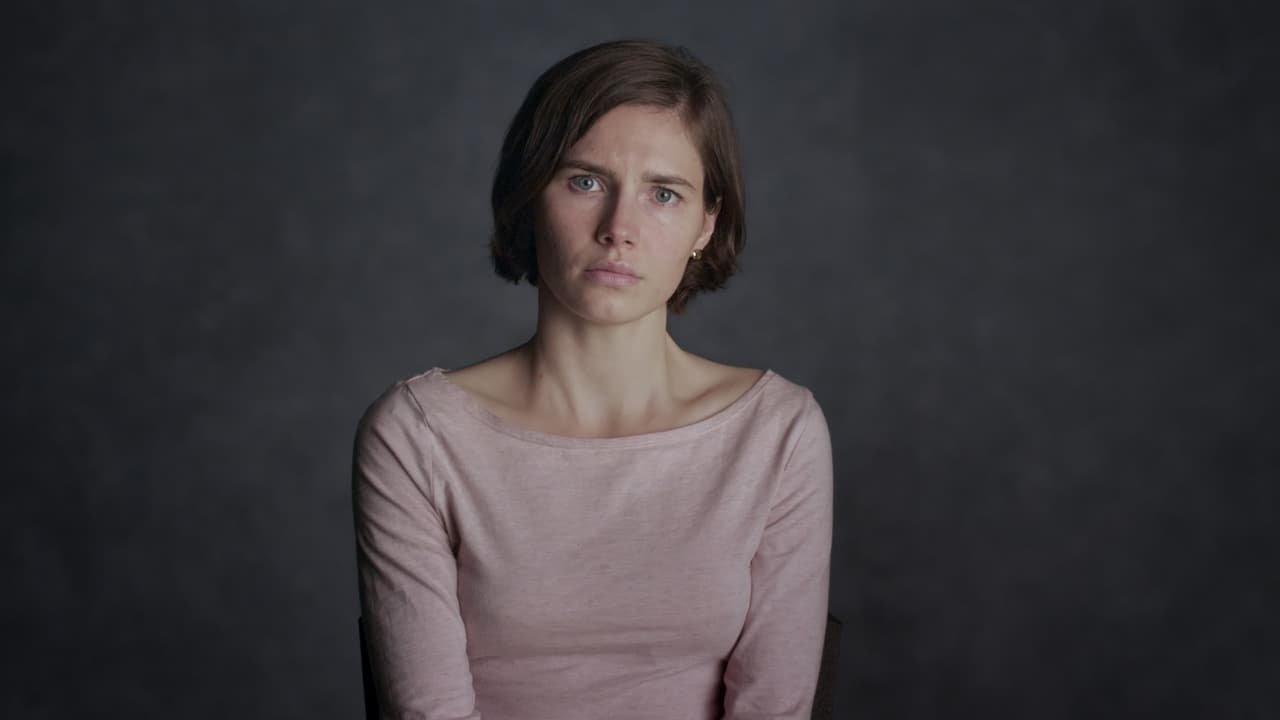

Wtf...that was my first thought when I saw the journalist describing the scenario like it was book of fiction or something. Even if he was satisfied with getting the scoop...a normal (emotional) person wouldn't laugh and in the same time describe it like a perfect "media-story". He seems to be an awful human being...!...and a bad journalist admitting he wrote articles in the case without doing any background check...just like many others do in social media today. A young girl died and that laugh, that was the most disturbing in this documentary!It was good that the chaos at the crime scene was recorded, that was enough to realize how non-professional the police was. And the the evidence they found after 48 day...wtf again...really!?!A good example of bad police work and how awful media can be...shame on both police and media!
... View MoreAmanda Knox (2016) *** (out of 4) The name Amanda Knox was put through the media storm when she and her lover were accused of murdering her roommate in some sort of sexual game. The American student was studying in Italy and soon she was behind bars with several stories out there about her being a deadly, sex-crazed maniac who turned to violence and murder. This documentary from Netflix features interviews with Knox, her love Raffaelo Sollecito, lead prosecutor Giuliano Mignini and reporter Nick Pisa.AMANDA KNOX is a good documentary that is more aimed towards the people who might not have already followed the story. If you're unfamiliar with all that happened then it's a good introduction to the events from the murder to the trial to the aftermath of everything. If you're already familiar with the trial then it's doubtful you're going to learn anything new here. In fact, this here is basically just a greatest hits package of the events as there are more detailed documentaries out there that you could watch.With that said, the greatest thing this offers is that you've got four of the main stars of the story here telling their stories. It's of course interesting hear from Knox as she talks about her time overseas and of course the horrors that follows once she found herself behind bars. I do wish the interview with her had been a bit more detailed and especially when it came to the media's attack of her and how she was acting just moments after discovering a body. It was also fascinating hearing from the prosecutor but even here it would have been better had they gone after him a bit more since his actions were quite controversial.Either way, the documentary is certainly worth watching.
... View MoreThe movie and the reviews here show how people can be so adamant about the need to punish somebody for a crime that they buy into the most ludicrous theories. Amanda Knox was persecuted by the police in Perugia for committing the transgression of being a "loose woman". What do we know about this case? - Rudy Guede's DNA was at the scene, a fact that makes no sense unless he was involved in the murder - In a Skype chat with a friend, Guede said Amanda wasn't there. - Guede had a history of violence and breaking in to homes. - High pressure tactics were used by the police to get Raffaele to change his alibi for Amanda, and to trick Amanda into a vague confession - The vague confession by Amanda implicated her boss, but this theory was discarded by the police. Instead, Guede was inserted into the case while the confession by Amanda was treated as evidence of her guilt. - the treatment of the DNA evidence by the Italian police was atrociously sloppyMany 1-star reviews are being given by people who are convinced of Amanda's guilt. They say that the film is "biased", apparently because the filmmakers didn't give equal weight to a pro-guilt side. Well...that's not what "biased" means. Yes, the filmmakers clearly feel that Amanda Knox is innocent. You know who else does? The Italian courts. To make claims of bias, you have to go further than to say that a person has an opinion you disagree with. You have to show that they view evidence in a partial fashion: discarding evidence that disagrees with predetermined conclusions while overstating the importance of evidence that agrees with them. There is bias in this case, as the documentary clearly shows. The prosecutor pursued a case against Amanda Knox for clearly irrational reasons, and the theories he uses are inconsistent and often ludicrous. His interviews are the most painful parts of the movie. He says things like "A female murdered covers the body of a female victim; a man does not. That's why I suspected a woman from the start." This is ludicrous. Amanda Knox and Raffaele Solecitto lost years of their lives to this nonsense - emotionally driven aversion to evidence-based pursuit of the truth. Bravo to the filmmakers for giving this story the care and attention it deserves.One final note: shame on all the tabloid journalists who fed the frenzy of insanity. The interview of the journalist who published Amanda's diary shows that he feels no shame at what he did - that he feels comfortable with the violation of her privacy. I wonder if he'll ever figure out what he did wrong here.
... View MoreI was able to watch this on Netflix streaming movies. It is hard to believe all this started 9 years ago.When I look at Amanda Knox, listen to the way she speaks, when I look at her backwards-sloping forehead, when I look in her eyes. I KNOW she is guilty, she is obviously a murderer! She killed her roommate.I say that in jest, because it is almost what the Italian prosecutor did. He is a fan of movies, especially detective movies. He is a great admirer of Sherlock Holmes, how Mr Holmes can look at sparse evidence and uncover not only the perpetrator of crimes but also the motive.And ultimately that is what happened. The Italian investigation had no concrete evidence, yet they were able to convict Knox and her boyfriend of 5 days. And they were able to explain a motive, pulled out of thin air. An appeal overturned that conviction. Then a higher court re- convicted them. And finally the highest court in Italy declared them not guilty. All this took place over an 8-year period. I found this to be an excellent documentary, which included interviews with Knox, her boyfriend, the prosecutor, and a British journalist. Who really knows if she had anything to do with it? Until the Italians find concrete evidence Knox will remain "not guilty." And I hope it stays that way.
... View More